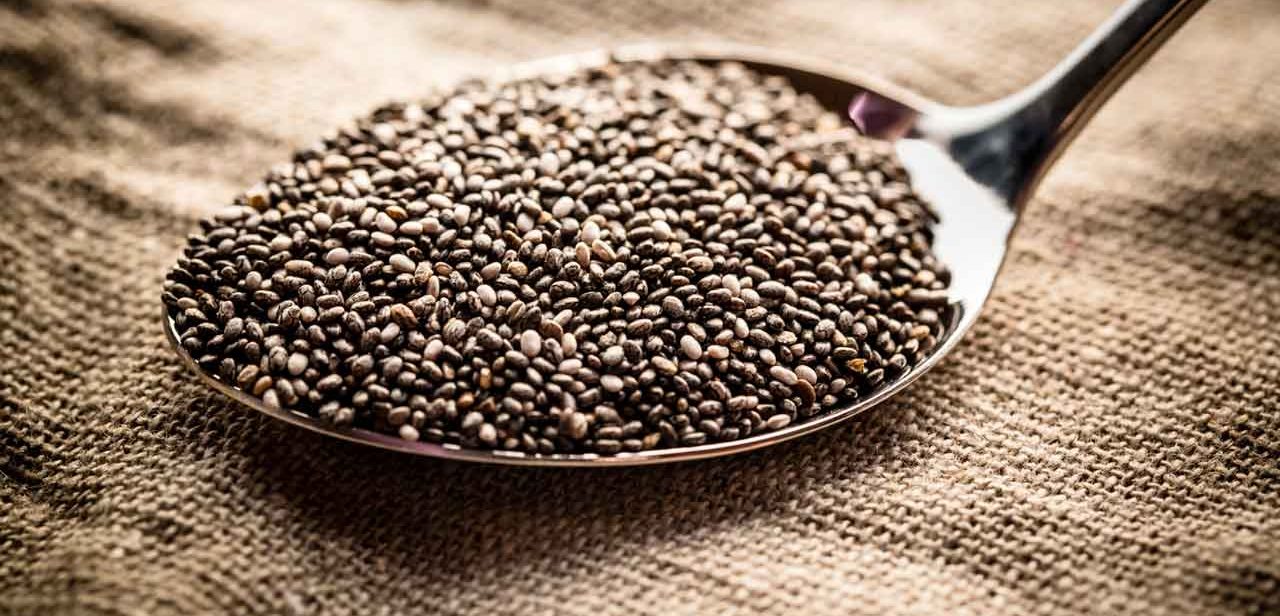The Benefits of Chia Seeds

What are the health benefits of chia seeds? Putting together the known chia seed nutrition facts and research, it’s possible these seeds could help you feel full and eat less.
There are lots of so-called superfoods. Lately the health benefits of chia seeds have gotten press. Just remember no one food will make up for an otherwise bad diet.
Below, we give you a dictionary of all things chia.
YOU MIGHT ALSO LIKE: How Much Protein Is in Eggs?
What are chia seeds?
Chia, or Salvia columbariae, is a plant in the mint family with small purple flowers, common in California and Mexico. The seeds were important in the diet of the ancient Mayas and Aztecs.
Chia pronunciation
ˈCHēə. You can hear it here.
Chia seeds nutrition facts
Chia seeds are high in dietary fiber, protein, and alpha-linolenic (ALA ) oil, all of which are good for you. Specifically, they are the most abundant plant source of ALA, and contain more than 30 percent of the fiber and around 20 percent of the protein you need daily.
Chia seeds and weight loss
The seeds might help you a bit. In a 2017 double-blind, randomized, controlled trial with two parallel groups (read well-designed) study from Toronto, researchers put 77 overweight or obese volunteers with type 2 diabetes on a six-month calorie restricted diet. One group’s diet included 30 grams of chia seed every day, and the other ate about the same amount of oat bran. People in the chia seed group lost 4 pounds on average, and about 1.5 inches around their waists compared to under a pound and half an inch for the oat-bran group.
In short, chia beat oat bran, but people didn’t lose a lot of weight.
In another 2017 study, researchers used a standard European design for testing appetite. They recruited 24 young women who were normal weight and not dieting and told them what they could eat for dinner the night before the experiment day and for breakfast. Then, for a mid-morning snack, they randomly received either yogurt with 7 grams of chia seeds, yogurt with 14 grams of chia seeds, or yogurt with no chia seeds.
Two hours later, they were served a lunch of pasta and a soft drink (not so healthy!) and invited to eat as much as they wanted. They didn’t know that the researchers were studying chia, and they couldn’t see what the other participants ate.
The experiment was repeated for three days. When the women ate chia in their yogurt — it didn’t matter how much — they reported feeling less hungry, and they ate less for lunch.
In a 2012 study, and a 2009 study researchers found no evidence of chia seed weight loss magic on overweight volunteers. (You might hear it’s necessary to eat your chia milled or whole, but the 2012 study found it didn’t make a difference.)
Studies do consistently find that chia seeds raise blood levels of ALA — but our bodies don’t easily use these oils from plants. ALA needs to be converted to DHA, the most important omega-3 fatty acid. You’ll still need to eat deep-water oily fish like salmon or consider a supplement if you’re vegan.
Chia food
There are many chia seeds uses. They’re bland, so you can add them to many dishes. And remember, they don’t need to be ground up like flax seed.
Besides sprinkling chia seeds on your yogurt, you could use them for more protein in a breakfast baked good or as a substitute for eggs.
Behold a recipe for pliable gluten-free and corn-free tortillas.
If you like pudding, you’re in luck. As BuzzFeed put it, “no other plant in history has done so much to vastly increase the amount of pudding recipes on the internet. And for that, we should all be grateful.”
The takeaway: If you’re wondering what chia is good for, think of it as a protein booster that will help you feel full and eat less. If someone in your life argues that the health benefits of chia seeds have been overhyped, you can nod, and keep enjoying your virtuous pudding.
Updated:
April 09, 2020
Reviewed By:
Janet O’Dell, RN